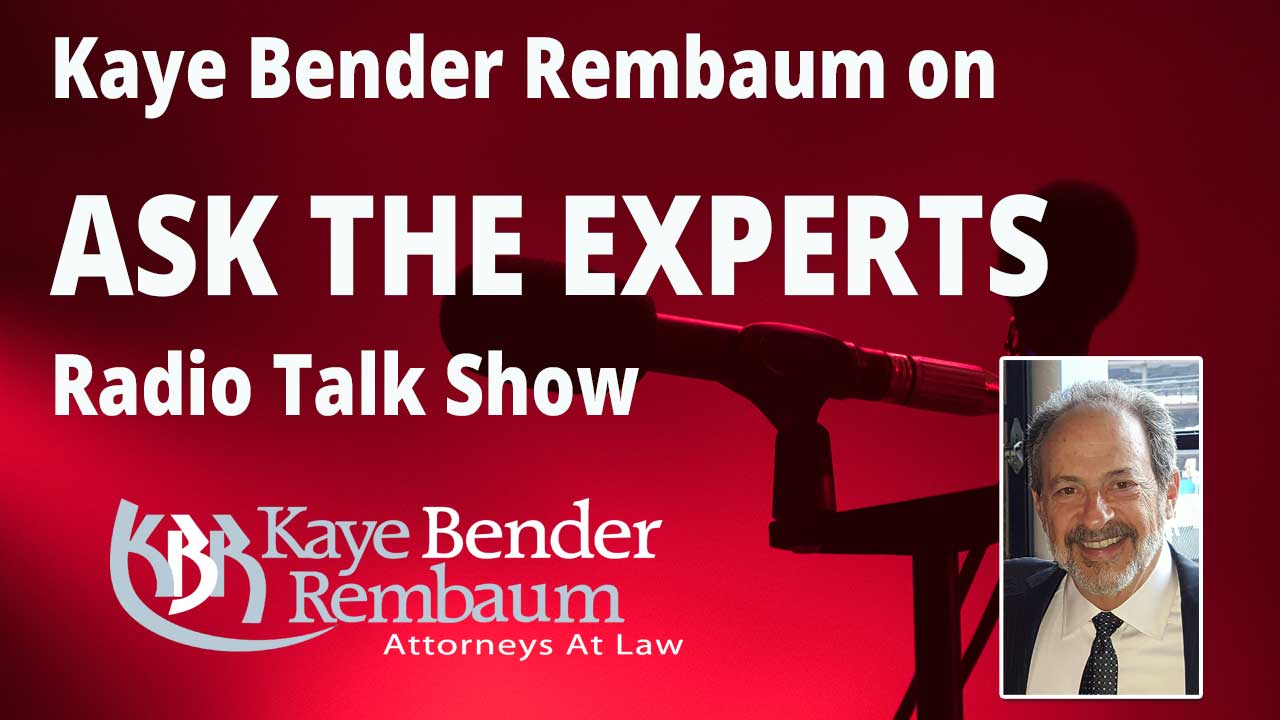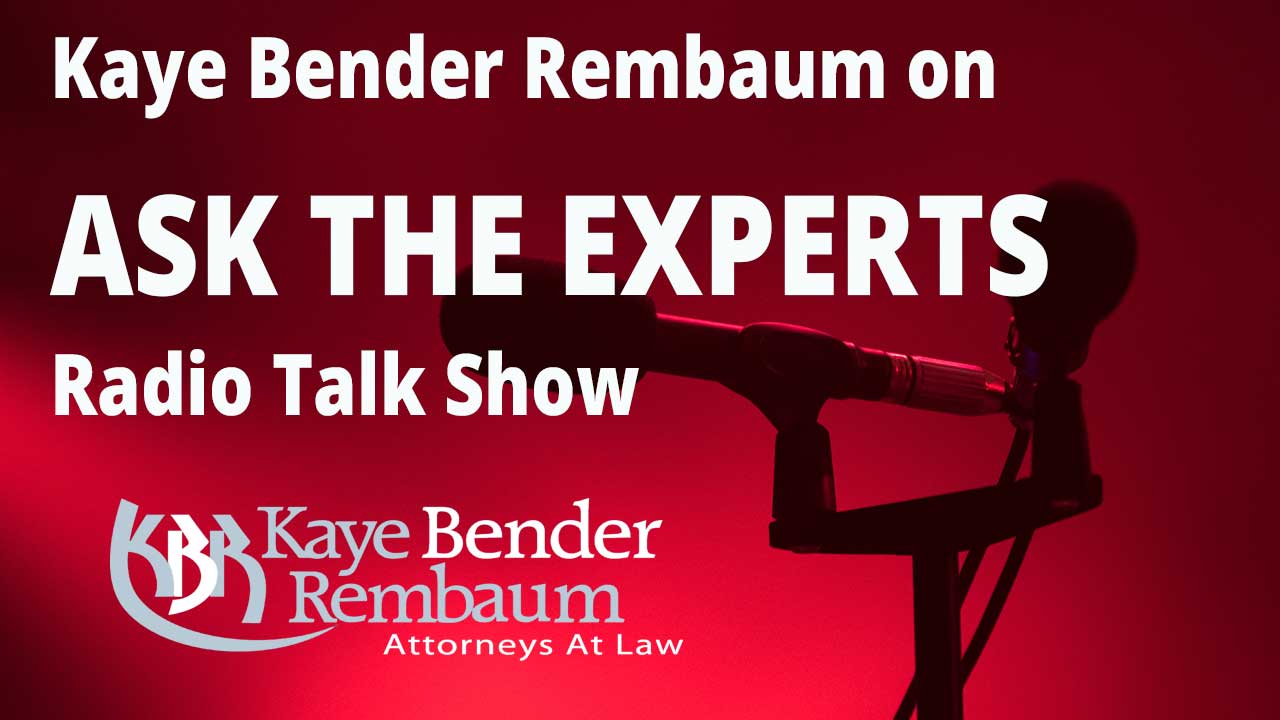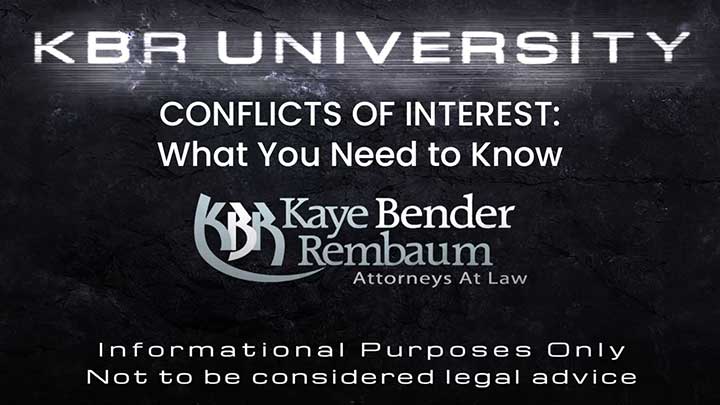Kaye Bender Rembaum on ‘Ask the Experts’ | June 30, 2022
This edition features attorney Allison L. Hertz (Palm Beach Gardens location).
Now also live on the last Thursday of each month, from 6:00pm to 7:00pm Eastern. Do you have questions about your condominium, homeowners’ or cooperative association? Get your questions answered live on-air, anytime during the live show by calling: 888-565-1470. Features attorneys from our offices throughout the state of Florida.
CAI Leadership Meets With HUD to Discuss Condo Safety
by Dawn Bauman, CAE and C. Scott Canady | Jun 9, 2022 | Federal Advocacy
This article is from the CAI Advocacy Blog, and can also be view HERE.

This week, CAI government and public affairs volunteers and staff met with leaders from the U.S. Department of Housing and Urban Development to discuss condominium safety regulatory and legislative solutions. CAI identified financial resources that may help homeowners and condominium associations finance structural integrity projects.
- Clarifying Community Development Block Grant and/or other Department-administered grant funds may be used by local and state governments to fund initiatives for condominium safety, soundness, and habitability of condominium and cooperative housing.
- Endorsing the SAFER Condos Act by U.S. Rep. Charlie Crist, D-Florida, to authorize Federal Housing Administration (FHA) insurance of loans and mortgages under the Title I property preservation and 203(k) rehabilitation programs that fund condominium association special assessments for structural repairs and financial reserves for future repairs. For the SAFER Act to pass, we need your help. Please click here to contact your U.S. House of Representatives member to urge them to support the SAFER Condos Act.
- Working to modify FHA multifamily mortgage insurance programs to authorize blanket mortgage insurance for loans obtained by condominium associations to finance structural repairs.
- Exploring policies to enable participation by cooperative unit owners and cooperative corporations in Department programs that support financing project-level structural repairs.
This meeting was another step in our conversations with HUD leaders to explore and support financial solutions for condo safety. A special thank you to the meeting participants, including:

Ron Perl, Esq.
Hill Wallack, LLP (New Jersey): Chair, CAI Federal Legislative Action Committee; CAI National Past President; CAI New Jersey Chapter; CAI New Jersey Legislative Action Committee; Fellow, College of Community Association Lawyers
Ronald L. Perl is a partner in the Princeton, N.J. office of Hill Wallack LLP and a member of the firm’s Management Committee. He is partner-in-charge of the firm’s Community Associations practice group.

Lisa Magill, Esq., BCS
Kaye Bender Rembaum (Florida): Member, CAI Government and Public Affairs Committee; Member, CAI Federal Legislative Action Committee; Member, CAI Florida Legislative Alliance; Co-Chair, CAI Surfside Response Reserve Study & Funding Plans Policy Taskforce

Mitch Frumkin, PE, RS
Kipcon Engineering, Inc. (NJ, PA, NY): CAI National Past President; Co-Chair, CAI Surfside Response Reserve Study & Funding Plans Policy Taskforce; CAI New Jersey Chapter; CAI Keystone Chapter; Member, CAI New Jersey Legislative Action Committee; Co-Chair, CAI Surfside Response Reserve Study & Funding Plans Policy Taskforce
Mitchell H. Frumkin founded Kipcon, Inc. in 1986 and fosters its growth with constant innovation and education. A Licensed Professional Engineer in eighteen states, Mr. Frumkin holds the Community Associations Institute’s (CAI) Reserve Specialist designation. A recognized industry expert, Mitch Frumkin is a frequent speaker, writer, and committee member on the state and national levels for the CAI, NAHB, and many other professional organizations.

Don Plank
(Virginia) Assistant Vice President, National Cooperative Bank: Member, CAI District of Columbia Legislative Action Committee
Mr. Plank provides financing solutions to condominium associations, homeowner associations and housing cooperatives throughout the DC Area, including term loans (amortized), lines of credit, and balloon loans.
Kaye Bender Rembaum on ‘Ask the Experts’ | June 2, 2022 with Robert Kaye
Live on the first Thursday of each month, from 6:03pm to 7:00pm Eastern. Do you have questions about your condominium, homeowners’ or cooperative association? Get your questions answered live on-air, anytime during the live show by calling: 888-565-1470. Features attorney Robert L. Kaye, a Board Certified Specialist in Condominium and Planned Development Law.
Kaye Bender Rembaum on ‘Ask the Experts’ | May 26, 2022
This edition features attorneys Michael S. Bender (Pompano Beach location) and Peter C. Mollengarden (Palm Beach Gardens location).
Now also live on the last Thursday of each month, from 6:03pm to 7:00pm Eastern. Do you have questions about your condominium, homeowners’ or cooperative association? Get your questions answered live on-air, anytime during the live show by calling: 888-565-1470. Features attorneys from our offices throughout the state of Florida.
Hurricane Season Preparedness
As with each year, we hope for a season with no hurricanes coming our way. However, it is safe to expect that there may be at least one such event in the coming months and, at the start of the hurricane season, it is prudent to plan for that possibility. Some of the planning steps that should be considered include the following:
- Create a disaster plan and establish off-site contact information and meeting points.
- Establish evacuation routes and conduct building or community evacuation drills in the weeks leading up to and once the hurricane season has begun.
- Verify that emergency generators and supplies operate and that fuel, flashlights, batteries, water, and other necessities are available.
- Backup computer files and store information offsite, in case computers crash or systems fail.
- Secure the premises. Make preparations for routine lockdown of the building(s) or other facilities as a storm approaches, so the building(s) is(are) secure during the storm and safe from vandalism or looting if a hurricane strikes.
- Write a list of owners and employees. Have on hand a current, hard-copy reference list complete with the names of all property owners, emergency contact numbers, and details of second residence addresses, as well as a list of all association employees, with full contact details.
- Photograph or video the premises. Keep a visual record through video or photographs of premises, facilities, and buildings to facilitate damage assessment and speed damage claims in a storm aftermath. Consider having the premises evaluated by appropriate professionals to establish the conditions prior to any hurricane event. (see further details on this item below)
- Make a building and facilities plans. Make sure a complete set of building or community plans are readily available for consultation by first responders, utilities workers, and insurance adjusters following a storm.
- Check all insurance policies and agent details. Be sure all insurance policies are current and coverage is adequate for community property, facilities, and common areas and compliant with State Law; full contact details for insurance companies and agents should be readily available in the event of a storm.
- Maintain bank account details and signatories. Keep handy a list of all bank account numbers, branch locations, and authorized association signatories, and make contingency plans for back-up signatories in case evacuation or relocation becomes necessary.
- Prepare to mitigate damages. In the immediate aftermath of a storm, take the necessary steps to mitigate damages. This includes “drying-in,” which is the placement of tarps on openings in the roof and plywood over blown out doors and windows, and “drying-out,” which is the removal of wet carpet and drywall to prevent the growth of mold.
- Remove debris.Have a plan for the speedy removal of debris by maintenance staff, outside contractors, or civic public works employees should a hurricane topple trees and leave debris in its wake.
- Reach out to your professionals. Be in touch with your management team and legal counsel to assist in guiding you in making fully informed business decisions to best protect your Community
Webinar | Conflicts of Interest – What You Need to Know
This course is for educational purposes and is not to be considered as legal advice. Watching this video on demand does not satisfy any state requirements, nor does this on-demand viewing offer any CEU for licensed managers.
Join attorney Allison L. Hertz and learn to identify potential conflicts of interest, how to document disclosures, internal controls and training staff, directors and officers, any new statutory requirements and penalties and best practices for associations.
Kaye Bender Rembaum on ‘Ask the Experts’ | May 5, 2022
Live on the first Thursday of each month, from 6:03pm to 7:00pm Eastern. Do you have questions about your condominium, homeowners’ or cooperative association? Get your questions answered live on-air, anytime during the live show by calling: 888-565-1470. Features attorney Robert L. Kaye, a Board Certified Specialist in Condominium and Planned Development Law.
Kaye Bender Rembaum on ‘Ask the Experts’ | April 7, 2022
Live on the first Thursday of each month, from 6:03pm to 7:00pm Eastern. Do you have questions about your condominium, homeowners’ or cooperative association? Get your questions answered live on-air, anytime during the live show by calling: 888-565-1470. Features attorney Robert L. Kaye, a Board Certified Specialist in Condominium and Planned Development Law.
LAST SURFSIDE-INSPIRED BILL FAILS: A Perfect Opportunity Lost

Rembaum's Association Roundup | Jeffrey A. Rembaum, Esq., BCS
As a result of the 2022 Florida legislative session, there will be no new statutes requiring mandated building/engineering inspections, no statutory changes to budgeting procedures, no mandated reserve study requirements, and no statutory changes to required disclosures.
While only a very few Florida counties have mandated in their code of ordinances that older condominium buildings have life-safety inspections, that does not mean required maintenance and proper planning can be otherwise avoided elsewhere. Board members must exercise their fiduciary duties with due care and due diligence. Voluntary engineering inspections and professional reserve studies should be considered to take place on a regular schedule. Maintenance, repairs, and replacements should be budgeted and funding sources properly identified.






